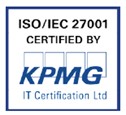Tips for Vis Moot Participants
3 March 2023
The Vis Moot is a moot court competition, the purpose of which is (as stated on their website) to foster the study of international commercial law and arbitration for resolution of international business disputes. In practical terms, the task in the Vis Moot is to present your client’s case first by submitting memoranda for both the claimant and the respondent and then again in the oral hearings. The educational side of the Vis Moot, dealing with a concrete problem of a client, is very much in the interest of law firms, and Hannes Snellman is proud to have a well-established role in supporting Finnish students wishing to participate in the Vis Moot together with other reputable Helsinki-based law firms and Finnish universities. As at the dawn of Helsinki Pre-Moot 2023, we are writing about the Vis Moot for students asking the question: “Have you ever wondered what the Vis Moot would be like and whether to participate, or are you currently waiting for the oral rounds to start?”
The Vis Moot starts in October when the Problem is published. In the Problem, a case of two parties is presented in a form of a request to arbitration by the claimant and a response thereto by the respondent of the case. At the first stage of the Moot, each team prepares their memoranda for both sides of the table, i.e. for both the claimant and the respondent. The hearing of oral arguments forms the second stage of the Moot, which starts right after the teams have submitted their memoranda for respondent at the end of January. At this stage, each team first try their arguments and practice their pleading skills in pre-moots such as in Helsinki Pre-Moot before the main event held in Vienna and Hong Kong every spring.
The six-month moot period consists of studying the Problem, the underlying law(s)/rules and relevant cases as well as legal literature, and ever so importantly, to team working, legal reasoning, arguing, writing, and oral pleading. Although the Moot spans over a long time, the quantity of skills it has to provide, in terms of education and learning, is even more impressive. In retrospect, there are a few key points on which to concentrate and which may further enhance the great experience the Vis Moot has to offer.
1. Teamwork
University studies may feel lonely and focussed on writing academic texts that summarise opinions of professors, courts, and arbitral tribunals. However, when participating in the Vis Moot competition, you are part of a team that represents your University. Tip #1 is simple: make the most out of the interaction with your team mates. Discuss arguments within your team, challenge each other, create logical arguments by putting different minds to work on the same legal question, celebrate the successes, and share your feelings in failure. Your team members are on the same boat as you and they are in the best position to help you. The team is at its best when it creates something together.
2. Structure
We are storytellers. We are born with a natural gift to tell others about our experiences. Tip #2 is: build a storyline that is consistent, logical, and structured. Your pleading tells the arbitrators what happened, why you are arguing the case, and how they can solve the complicated matter before them. In order to achieve this, you tell the arbitrators the story of the case with your client’s best interests in mind. A good story will be clear and will keep the arbitrators interested by breaking the story in smaller parts (signposting). However, like all stories, you have to be prepared to keep it alive. Be prepared to change narratives. Tell the short version of the story or the lengthier one. Add and delete details. Bonus tip: the best storytellers are prepared to tell their stories in one minute.
3. Advocacy
There is no single universal answer to the question of what makes a great advocate. However, I believe that a great advocate is one who is ready to assist. In the Vis Moot, arbitrators are often looking for assistance. They expect the advocate to show them the relevant laws/rules applied to the facts of the case. In order to do this you must (Tip #3) show availability, credibility, and confidence. Be available to answer questions and show the arbitrators why your client is right. Never lose credibility. It is better to say that you do not know the answer to a question than to make up an answer that makes you lose credibility. Be confident when laying down your arguments. You and your team have put in a lot of hours studying the problem and the legal issues — you are the expert in the room.
4. Friendship
For me, Vis Moot was the best student experience. Above all, Vis Moot gave me friends for life. It is not unusual to meet people in a professional context today and notice that we were both doing Vis Moot during the same year. During the last year, the world has taught us a valuable lesson: don't take the status quo for granted. The words of Professor J. Martin Hunter seem particularly fit for these days: “My dream is that one day, when there is yet another conflict between two countries, the legal representatives sent to negotiate will recognise each other from the Vis Moot they did decades ago, where they faced the same problem and forged friendships. This, I think, will allow them to resolve that conflict.” You might have guessed but tip #4 is make friends and have fun.






